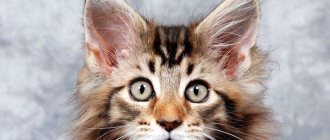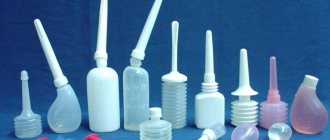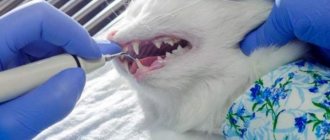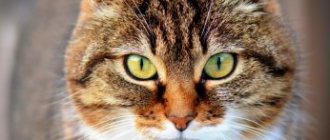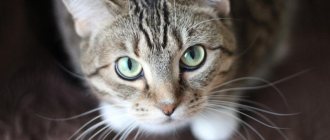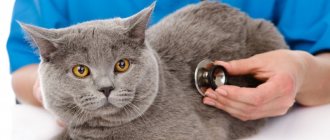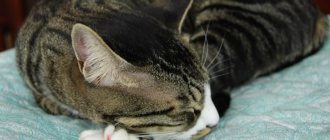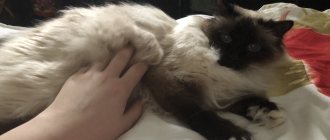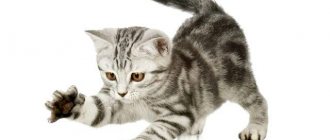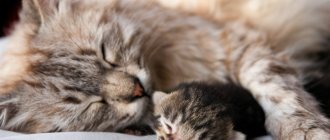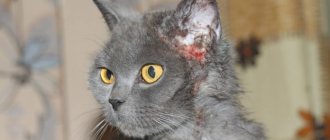Good hygiene is essential to maintaining the health of every pet. The main reason for the appearance of plaque is insufficient care of teeth and gums. The most common disease in every second cat is a lesion
tartar. Plaque does not cause cats much discomfort, but if measures are not taken, a dangerous disease can occur, including death. Therefore, brushing your cat’s teeth weekly is an important responsibility of every cat owner.
The need for oral hygiene
Cats belong to the order of predators. In the wild, the process of brushing teeth occurs naturally, because the cat's diet contains bones and cartilage of small animals and birds. They erase the plaque, and the teeth of wild predators remain white and smooth. Pets have a more varied menu, but it mainly consists of soft food. Many pets refuse to eat dry food, choosing pouches and pates. This causes plaque to remain in place and harden over time.
The stone is located on the neck of the tooth, in close proximity to the gums. Its gradual growth leads to the fact that the mucous membrane is injured and inflamed. If treatment is not started, a number of diseases may develop: caries, stomatitis, gingivitis, periodontal disease, osteomyelitis. The latter is characterized by purulent lesions of the jaw tissue, which can spread throughout the body. In this case, there is a risk of developing sepsis and death.
To prevent possible complications, all owners are recommended to perform hygienic cleaning of the oral cavity of their pets. The procedure should be performed at least twice a week.
Rating
According to reviews from many owners, the most popular treats for cats can be presented in the form of a rating.
5. Happy Cat
This manufacturer produces treats for cats mainly in dry form - these are homogeneous pads or pads with a soft core. The composition includes meat ingredients, vegetables, grains. The main purpose is a treat. The price of the product is quite affordable.
Sofia: “This food was recommended to us, they said it was good.
And we decided to try it. At first the cats appreciated him. And I liked the composition, better than that of our previous manufacturer. We bought another portion, a larger one. But the next time our cats didn’t want to eat it. And, as they say, a cat won’t eat just anything!”
4.Total Max
The manufacturer produces various products for cats, including vitamins and preventive ones. Animals enjoy the treats, the price is not high, and the ingredients are rich. The only negative is that the composition contains dyes and flavors.
Anastasia: “In general, the composition is quite good, but there are flavors and dyes. This means that I think there is not that much natural meat there, otherwise the cat simply won’t eat it. But it also contains various vitamins that are beneficial. Helps remove hair. The cat likes it."
3. Country delicacies
Here you will find a wide range of different delicacies - pads, straws, pieces, sausages, sticks, pasta. The products are presented in all types, enriched with vitamins, fiber, and you can choose a prophylactic product for cleaning teeth and removing hairballs.
Anna: “I have a very picky cat. She doesn’t eat any other vitamins, treats or sweets, but she devours this delicacy on both cheeks. Now this is our favorite treat!”
2. Mums
The manufacturer offers products for your pet's health. Fortified, nutrient-rich, natural and very attractive to cats.
Maria: “My cat is completely on homemade food. I buy her treats just to spoil her and for variety. The choice fell on “Mnyams”. The cat tolerates it well and does not refuse homemade food. The composition here is good, the price is not high, and they last a long time. I recommend this supplement to everyone, my cat loves it!”
1. GimCat (GimPet)
Products for beloved cats, originally from Germany. High quality, huge range, without preservatives, dyes or flavors. Treats of all kinds are presented. Wide range of fortified products. A variety of products for cleaning teeth, removing hair, and normalizing the functioning of the gastrointestinal tract. You can choose a treat individually for each cat. The forms of treats are very diverse - pastes, cream soups, dry pads, tablets and many others.
Marina: “This delicacy is an integral part of our cat’s diet. I mainly use the balls to clean my teeth. I give a few every day. This is not only a good thing for teeth, but also a tasty treat and snack. The cat now has no plaque on his teeth, no bad breath, his teeth are white and clean! In addition, the delicacy is also enriched with vitamins.”
Did you know? In cats, the same areas of the brain are responsible for emotions as in humans. Thus, in terms of biological structure, the feline brain is much closer to that of humans than that of dogs.
Tools and devices
To brush your cat's teeth, you will need toothpaste and a brush. Should cats' teeth be brushed with human hygiene products - under no circumstances! The paste will poison the animal, and the brush will damage the delicate gums.
Brush selection
Pet brushes vary in shape, size and material from which they are made. Pet stores sell:
- silicone models;
- with soft bristles.
The first ones are made in the form of a fingertip; instead of hairs, they have small teeth, which are used for cleaning. The latter differ from conventional brushes in the size and softness of the bristles. Some owners use toothbrushes designed for children in their first year of life. There are even those who brush their pets' teeth with regular gauze tied on their finger. The method is dangerous in the case of an aggressive cat, as it can bite a finger. It is quite acceptable for calm pets.
Toothpastes and gels
Toothpaste should be specifically designed for animals. Since pets do not know how to rinse their mouths, all residues are swallowed. Using simple menthol pastes on people can lead to severe food poisoning.
In order for the cat to more readily accept the cleaning manipulation, special flavors are added to the products (for example, meat or fish). Most often in pet stores you can find the following brands of drugs:
- Gel 8in1;
- Huts;
- FELINE HEALTH NUTRITION.
To remove the primary soft formation, you can purchase veterinary sticks for cleaning teeth. They are moistened with a special composition that softens and removes plaque.
Purpose of treats
Some people who keep a cat in their house do not even suspect that there are special treats for their pet. Other owners are concerned about the problem of choice.
Treats for cats are needed to please your pet and pamper him with a special treat. It's no secret that giving your cat food from your table is not a good idea. Smoked brisket or dried fish are not the healthiest foods for your cat and can be harmful to his health.
And fragrant salmon or tender veal can easily turn from a delicacy into a constant food when the pet begins to refuse any other food.
It will also be useful for you to learn how to feed cats correctly, how to choose dry cat food, holistic food, and canned food.
It is for this occasion, when loving owners want to please and pamper their pet with benefits for its health, that special cat treats are sold. There are many types of them, each of which differs not only in composition and taste, but also in its specific purpose.
Often such specialized products are used as a reward when training a pet to learn commands. Other dietary supplements for cats provide specific health benefits.
Animals are very happy about this treat, because for them it is like candy for children. However, unlike candy, cat treats can be very useful if you choose them correctly in terms of quality, composition and taking into account the cat’s needs.
How does the procedure work?
It is not recommended to carry out manipulation without special training. If teeth cleaning for cats is the first time, you need to let the animal sniff objects that are new to it. You can offer to try the paste so that the taste and consistency are familiar to the cat. Thirty minutes before the start of the procedure, it is recommended to remove bowls of food and water.
Preparation
The first attempt to brush a cat's teeth may be unsuccessful if the pet is not accustomed to this. To prevent brushing your cat’s teeth from becoming stressful, and for the owner from becoming a traumatic procedure, you need to be well prepared:
- feed the cat 1.5-2 hours before the hygiene procedure;
- create a calm and quiet environment in your home;
- make sure in advance that the cat is familiar with all the cleaning items - brushes, bandages, a tube of paste;
- A particularly restless cat should be wrapped in a towel and held.
At first, you will most likely need an assistant. In the future, even one person can handle a cat accustomed to cleaning.
If the cat resists at the initial stage, it is better to let it go and let it calm down. A new attempt can be made later, when the animal is relaxed and friendly.
Direct cleaning
At first it will be unusual and difficult for you, but over time the procedure will become simple and fast. How to brush your cat's teeth yourself:
- Apply a little cleaning product to the brush;
- take the cat in your arms and place it on your lap with its back to you, trying to calm it down as much as possible;
- open your mouth with two fingers and slightly pull your lips to the sides;
- begin smooth movements without significant pressure from top to bottom, then along the entire dentition.
- If something bothers your pet or he doesn’t feel well, the procedure must be rescheduled for another day.
Brushing cats' teeth at home is contraindicated if they have oral diseases. These are inflammatory processes of the mucous membranes, bleeding gums, gingivitis, stomatitis, post-extraction alveolitis - inflammation of the hole at the site of the extracted tooth. It is necessary to approach the process with caution if your pet has a tendency to have epileptic seizures.
If, despite regular hygiene procedures, you notice a dark, hard plaque on your teeth that cannot be removed with a toothbrush, ultrasonic teeth cleaning is used.
Ultrasound cleaning of dental calculus is performed under general anesthesia in a veterinary office. It is not very cheap, but the stone is completely removed, and then you do not have to treat the cat for more serious diseases.
If the cat resists strongly
Since not every cat can brush its teeth, veterinarians allow several options for the hygiene procedure.
If a cat generally does not like violent actions, she will need a special retainer bag. The bag will help carry out regular procedures necessary for the health of the animal: cleaning eyes and teeth, combing, trimming nails, and medical treatment in case of illness. The cat will gradually get used to the bag and will not resist too much.
It happens that the main thing for an animal is to demonstrate its character. Then the owner needs to prove his authority and strength: you can tightly swaddle the cat and at least brush its teeth a little, thereby showing that you are serious. You should not shout, you need to talk to the animal in a firm, quiet voice. An adult animal understands human intonations perfectly and will reduce resistance in most cases.
If your pet is timid or begins to take revenge after every brushing of its teeth, you will have to look for an alternative. It will be more complicated and more expensive, but you cannot completely abandon hygiene - otherwise it will result in serious health problems.
Hygiene equipment
How to brush your cat's teeth? To complete the cleansing procedure, it is worth remembering all the necessary accessories. In addition to toothpaste, you need to purchase a soft toothbrush, powder or cleansing gel.
Toothbrush
How to clean a cat’s ears at home: options for how and what to wash with
There are several types of brushes that are used to clean the oral cavity of pets:
- A special brush that fits on your finger. One of the most inexpensive products, which costs around 100 rubles. This brush cleans the mouth well of plaque. However, it is considered an unsafe option, since in the process the cat may bite the owner’s finger due to a not very pleasant procedure.
- Liquid brush. Used without toothpaste. It quickly removes plaque and whitens the animal’s teeth. Similar products cost around 1000 rubles.
- Regular brush. In appearance it is similar to a human one, but is more compact in size. There are various brush heads that help remove food particles from your mouth.
Important! Before choosing equipment, you should consult your veterinarian. He will conduct an oral examination and make his recommendations.
Toothpaste or tooth powder
Toothpaste for kittens
You should approach the choice of toothpaste responsibly. Experts advise choosing a mint-flavored paste to make the cleaning process more comfortable.
Good products must include bone meal, glycerin, and enzymes. These substances help to gently rinse the mouth without scratches or damage.
There are several types of toothpastes for cats:
- Medicinal. Used as a course in the presence of oral diseases in cats.
- Preventive. Used to prevent the development of dental pathologies.
- Powder pastes. Use for regular use. Such products remove stuck food from teeth and cleanse plaque from enamel.
Products in powder form contain mineral components that help maintain the integrity of teeth and gums. Some veterinarians advise adding powder pastes to food. They help clean the oral cavity and prevent the development of germs and bacteria. These products do not contain caustic components, do not give off odor or taste, so pets will not even notice its presence in food.
It is worth considering that powder products are used in a strictly specified dosage.
Cleansing gels
Special oral gels are hypoallergenic products that fight inflammation of the oral cavity, reduce plaque and caries. A huge advantage of such products is that there is no need to use toothpaste. Such products are created from natural ingredients; they do not contain aggressive particles or flavors, so they do not cause allergies and are well absorbed by cats.
The spectrum of action of gels is wide:
- plaque removal;
- reduction of tartar;
- disinfection of the oral cavity;
- elimination of unpleasant odor;
- removal of bacteria and parasites;
- relieving the inflammatory process.
Important! Veterinarians recommend using gel-like products several times a day. After 1-2 months of intensive therapy, the frequency of procedures is reduced several times.
Frequency of manipulations
Veterinarians recommend carrying out a hygiene procedure 1-2 times a week, but many owners do not rest on this: should they brush their cat’s teeth more often? If the cat is already used to it and does not show aggression, then you can increase the frequency of procedures to 5-6 times a week, especially if the animal is prone to problems with the oral cavity.
The second controversial issue arises when comparing oral hygiene in humans and animals. People brush their teeth every day and still visit the dentist once every six months - for oral hygiene, fluoridation and other types of prevention. Does a cat need to have its teeth cleaned by a veterinarian if the owner does it regularly at home? No, it is not necessary if everything is fine with the animal. Professional laser cleaning is only necessary in case of tartar formation.
How to choose a treat
In order to choose the right treat for your pet, decide what function it should perform. If you just want to pamper your pet and entertain him, then just choose neutral treats. The cat will like them and will not violate its daily calorie intake.
To encourage your animal during training, you can treat it with nutritious treats. They will make him more obedient. They can replace one or two daily meals, but this should not happen constantly, otherwise the cat will refuse other food.
It is recommended to feed cats with premium food - “Probalance”, and super-premium food - “Monge”, “Go”, “Brit”, “Almo Nature”, “Fest Choice”.
It is important not to overfeed her with such food, otherwise excess weight gain is inevitable.
You can choose your own treats to benefit your teeth, and they will serve as a preventive measure against possible dental problems in the future. And if your cat often suffers from the fact that he cannot regurgitate hairballs, then treats with malt paste are suitable for him.
However, in some cases, before you start giving any treats, you need to consult a veterinarian for advice.
For example:
- if the cat is prone to obesity, dietary treats will be more suitable for her;
Cat breeds such as Korat, Toyger, Munchkin, and Russian Blue cats may be prone to obesity.
- If an animal has undergone surgery or is recovering from a serious illness, it needs vitamin supplements, but it may require specific vitamins rather than a whole complex. The veterinarian will tell you which ones to choose;
- If your pet is too thin and won't gain weight on regular food, nutritious treats may be needed to fatten it up. But the cause of thinness must be determined by a doctor, because more serious treatment may be necessary;
- the needs of older animals are different from those of young ones;
- If you feed your cat homemade food, then any vitamin and nutritional treats will most likely suit her. However, if the animal eats food from the manufacturer, which initially includes some vitamins and minerals, then the supplement in the form of a tasty treat can lead to an overabundance of some substances. Therefore, it is better to carefully study the composition of the food and choose a treat taking into account this composition and without violating the daily norm of calories, vitamins and microelements.
Did you know? Cats spend 2/3 of their time sleeping. This means that the nine-year-old cat was awake and active for only 3 years of his entire life.
When and how to teach a kitten to brush its teeth
You should begin introducing your cat to the teeth cleaning procedure as early as possible - 2-3 months after the pet moves into your home. The process is quite simple and does not take much time:
- After he has eaten, the kitten is placed on his lap and begins to be stroked.
- The index finger is bandaged with gauze and soaked in meat or fish broth. The baby is invited to sniff it and even taste it without biting it with his teeth.
- After a few days, the procedure is repeated, but the finger is carefully inserted into the oral cavity. And after a week they begin to massage their gums. If you find yourself in the period of changing milk teeth to molars, then the cat will definitely not refuse such pleasure.
- After a month, a brush takes the place of the finger, and instead of broth, toothpaste with added flavoring is used.
Handle your pet carefully, without raising your voice at him. The kitten, frightened by unusual actions and the scream of the owner, may dislike the procedure.
How to brush your cat's teeth at home
Almost all cats are not enthusiastic about the procedure of brushing their teeth and will resist. It is difficult to immediately find the right position for your pet. Experienced cat breeders recommend the following technique:
- Place the cat with its back to you.
- To make the animal raise its head, gently stroke its neck.
- With your left hand, grab your head from above.
- Use your thumb to first expose the right upper jaw and brush as much as possible, the cat will not sit still.
- Before brushing the teeth on the other side, you need to give the animal a rest, praise it, and calm it down. Spend 30-60 seconds on each side.
- Then move on to the lower jaw. In this case, it is more convenient to move the lip away with your index finger.
The brush is held at an angle of 45 degrees relative to the gums. Movements from the gums and to the sides. Particular attention is paid to the junction of teeth and gums.
Alternative Cleaning Methods
Owners are not always able to brush their cat’s teeth because the animal behaves too aggressively or fearfully. For such cases, there are alternative methods: they are effective, but quite expensive - the cost of the funds varies from 250 to 2000 rubles. You can find them in a pet store or veterinary pharmacy:
- Special sticks and pads are designed to clean enamel from tartar, polish, whiten and give a pleasant smell. These delicacies are made from meat products with the addition of vitamins, grains and antiseptics.
- Liquid paste is designed to remove tartar and protect gums from bacterial growth. This product is suitable for kittens and cats of all ages. It is necessary to dilute 5 ml of liquid in 300 grams of water and give it to the cat daily. The only drawback of this convenient method is the high price (around 1000 rubles).
- The veterinary spray is applied to the gums and teeth. Its disadvantage is that the cat still needs to be held tightly, but the owner is spared the work of using a toothbrush.
- Dental hard food helps strengthen teeth and protect the oral cavity. Consist of vitamins, microelements, grains and meat products. Solid granules clean and polish the enamel, removing plaque. The main thing is to remember to offer your cat plenty of fresh water.
- Special toys are designed for kittens: when baby teeth are replaced by molars, the baby experiences discomfort and constantly needs to chew on something. The toy is perfect for these purposes - it does not damage the gums and helps cope with itching.
Do cats need to have their teeth brushed at the veterinary clinic if none of the alternative and traditional remedies work? Definitely - as soon as a hint of tartar appears, you need to visit a veterinarian. He will put the cat under anesthesia and clean his teeth with an ultrasound.
What bones should you give cats to clean their teeth?
In addition to traditional methods of brushing your teeth, you can also use alternative ones.
- Let's start with special dental toys. Special bones come in different scents and are used to clean teeth from plaque.
- You can also give cats regular edible bones. However, you need to take into account the breed of the pet, its age and the condition of its teeth. Very often, cats do not gnaw bones, but simply swallow them, and this, as is known, leads to digestive problems
- Cats can be given bones, which are sold in pet stores. Such delicacies most often consist of tendons, joints and crushed bones
- Large bones with some meat left on them. The bones must be large so that the animal cannot eat them and chew them into small pieces
- Remember, cats should not be given tubular bones. You should also not feed your pet sharp bones, because they can easily damage not only the animal’s oral cavity, but also its internal organs. Even if the bones easily enter the stomach, they can cause digestive problems
- Regular dry food also cleans teeth well, but if your pet has not consumed it before, then consider the need to use this particular method of brushing teeth.
Bones for cleaning teeth
Cats are purring antidepressants, which, perhaps, are in every home. As you can see, in addition to joy, they can bring quite a lot of trouble. However, such chores are even a joy for a truly loving owner. Teach your pet to oral hygiene from childhood - and then you will not encounter possible difficulties in the future.
